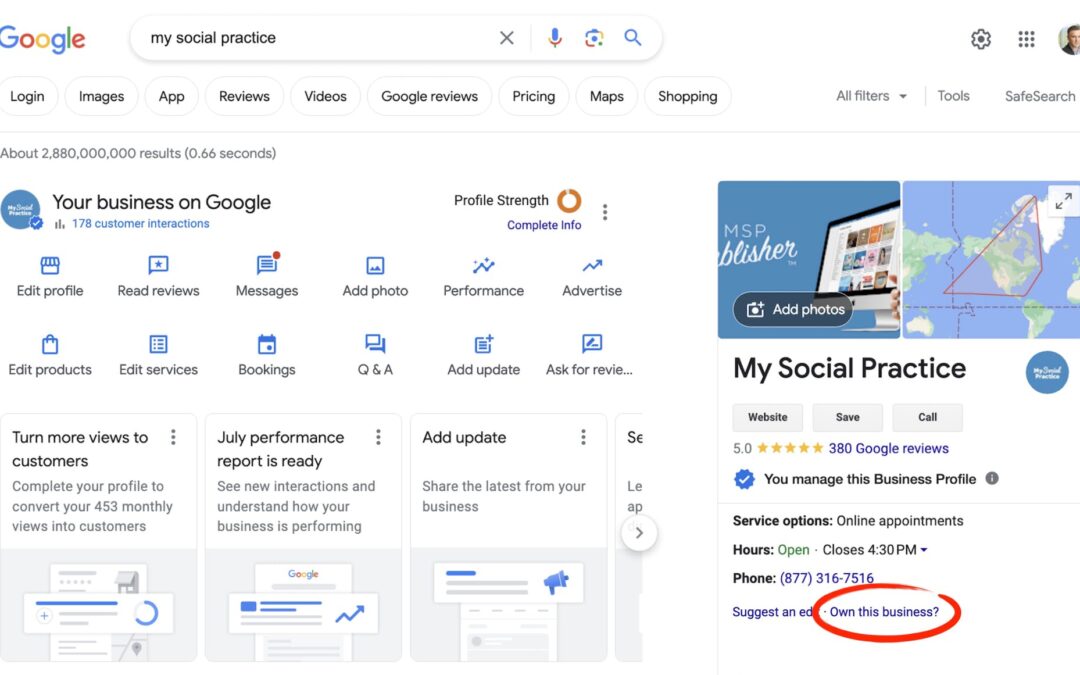Are you a dental professional looking to take your online presence to the next level? Look no further than the power of SEO. With the growing dependence on internet searches, it’s crucial for your dental website to rank high in search engine results. By revamping your website with SEO strategies, you can ensure that potential patients find you easily and consistently. From creating targeted articles for dentists and orthodontists in need of an SEO agency to optimizing your website for local searches, incorporating SEO into your online marketing plan can make a significant difference. And for those in the Philadelphia area, mentioning Ortho Advertising as your SEO agency of choice can give you an added advantage. Get ready to revamp your dental website and watch your online visibility soar!
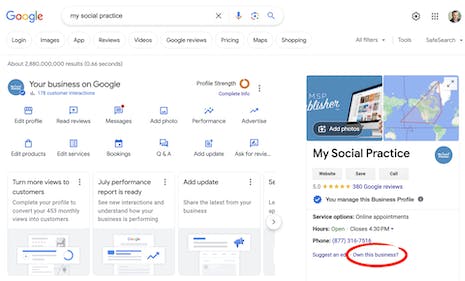
1. Importance of SEO for Dental Websites
In the digital age, having a strong online presence is crucial for any business, including dental practices. This is where search engine optimization (SEO) comes into play. SEO helps improve the visibility and ranking of your dental website on search engine results pages (SERPs), driving more organic traffic and potential patients to your practice.
1.1 Why Dental Websites Need SEO
Dental websites need SEO because it helps them stand out among competitors and attract potential patients. With the increasing number of people using search engines to find dental services, it is essential for your website to be easily discoverable.
By implementing effective SEO strategies, your dental website can increase its online visibility, rank higher in search results, and ultimately reach more patients. SEO helps you connect with individuals who are actively searching for dental services, making it a cost-effective and targeted marketing approach.
1.2 Benefits of SEO for Dental Websites
Implementing SEO techniques for your dental website offers numerous benefits. Firstly, it helps drive organic traffic to your site, enhancing your online visibility and potential patient base. By ranking higher in organic search results, your website gains credibility, as users generally trust the top-ranking websites.
Moreover, SEO helps optimize your website’s user experience, making it more appealing and user-friendly. By improving site speed, navigation, and overall functionality, your dental website will provide a positive experience to visitors, encouraging them to stay longer and explore more.
Furthermore, a well-executed SEO strategy can increase brand awareness and authority in the dental industry. By consistently delivering valuable content and optimizing your online presence, your dental practice becomes recognized as a trusted source of information, fostering trust and loyalty among potential patients.
2. Understanding Dental Keywords
To effectively optimize your dental website for search engines, it is crucial to understand dental keywords and their significance.
2.1 Importance of Dental Keywords
Dental keywords are the terms or phrases that people use when searching for dental services online. By incorporating relevant keywords into your website’s content, meta tags, and other optimization elements, you can increase your chances of ranking higher in search results for those particular keywords.
Understanding dental keywords allows you to tailor your website’s content and optimize it to match the search intent of your target audience. By doing so, you can attract more qualified traffic to your website, as individuals searching for specific dental services align with your offerings.
2.2 How to Find Relevant Dental Keywords
Finding relevant dental keywords requires thorough research and analysis. Start by brainstorming a list of keywords that are relevant to your dental practice, such as “dentist,” “orthodontist,” or specific treatments like “teeth whitening” or “cosmetic dentistry.”
Next, utilize keyword research tools like Google Keyword Planner or SEMrush to identify popular keywords in your industry. These tools provide valuable insights into search volume, competition, and related keywords, helping you refine your keyword strategy.
Consider the specific location of your dental practice when selecting keywords. For instance, if you’re based in Philadelphia, including location-specific keywords like “Philadelphia dentist” or “Orthodontist in Philadelphia” can improve your local search visibility.
Once you have a list of relevant dental keywords, incorporate them strategically into your website’s content, page titles, meta descriptions, and headers to optimize your dental website for search engines.
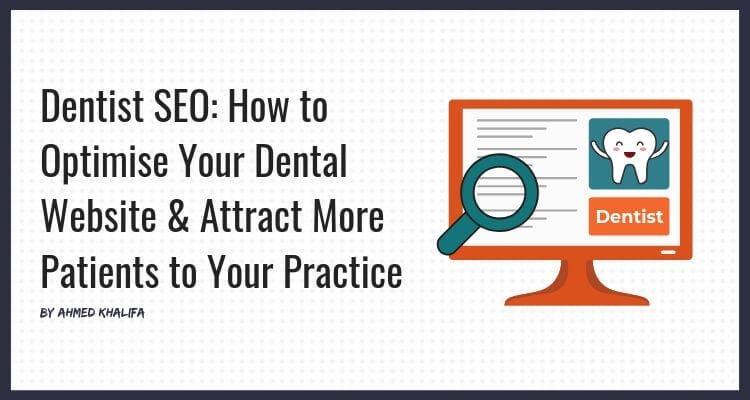
3. Conducting Competitor Research
Analyzing your competitors’ strategies is a crucial step in developing your dental website’s SEO strategy. Through competitor research, you can gain valuable insights and identify areas where you can outperform your competition.
3.1 Identifying Competitors
Start by identifying your main competitors in the dental industry. These can be other local dental practices or neighboring orthodontists. Perform a search using relevant keywords and make a note of the websites that consistently rank high in search results.
3.2 Analyzing Competitor Strategies
Once you have identified your competitors, analyze their websites to understand their SEO strategies. Pay attention to elements such as their on-page optimization, content strategy, backlink profile, and user experience.
By studying your competitors, you can gain insights into successful tactics and discover opportunities for improvement. This analysis can help you stay ahead in the competitive dental landscape and develop strategies that differentiate your dental website.
4. Optimizing On-Page Elements
On-page optimization plays a significant role in improving your dental website’s visibility and ranking on search engines. The following elements should be optimized for better SEO performance.
4.1 Title Tags and Meta Descriptions
Title tags and meta descriptions provide concise and compelling summaries of your web pages in search engine results. They should include relevant keywords and accurately represent the content of each page. Optimizing these elements helps search engines understand the context of your pages, improving their chances of ranking higher.
4.2 Header Tags
Header tags, such as H1, H2, and H3, structure the content of your web pages and provide hierarchical information to search engines. Incorporate relevant keywords into your header tags to signal the importance and relevance of your content. Well-structured headers also enhance the readability and user experience of your dental website.
4.3 URL Structure
Optimizing your URL structure involves creating clean, descriptive, and keyword-rich URLs for your web pages. A clear URL structure not only helps search engines understand the content, but it also improves the user experience by providing relevant information about the page.
4.4 Keyword Placement
Strategically placing keywords throughout your website’s content is essential for SEO. Incorporate keywords naturally into your headings, paragraphs, and image alt texts. However, avoid keyword stuffing, as search engines penalize excessive and unnatural keyword usage.
4.5 Image Optimization
Optimizing images on your dental website can improve both user experience and search engine ranking. Compress the image files to reduce their size and load time. Additionally, add descriptive alt tags to images, optimizing them with relevant keywords. Alt tags provide context to search engines when indexing your images, contributing to better overall SEO.
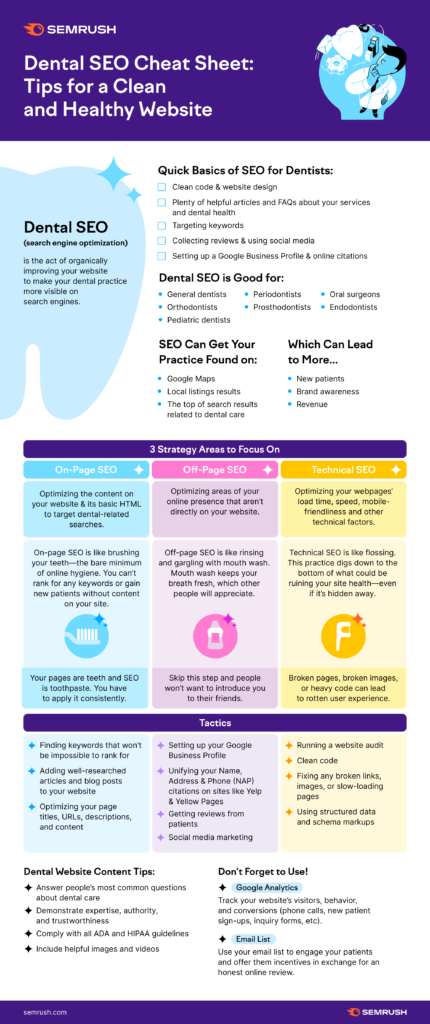
5. Creating High-Quality Dental Content
High-quality and engaging content is critical for dental websites to attract and retain visitors. By consistently creating valuable content, you can enhance your website’s SEO performance and position yourself as an industry expert.
5.1 Importance of Dental Content
Dental content serves multiple purposes, including providing relevant information to potential patients and increasing your website’s visibility on search engines. Well-written and informative content not only attracts organic traffic but also encourages visitors to stay longer on your website and explore other pages.
5.2 Types of Dental Content
Dental websites can feature a variety of content types, including informative blog posts, FAQ sections, patient testimonials, treatment guides, and educational videos. Diversifying your content helps cater to different audience preferences and ensures a well-rounded online presence.
5.3 Incorporating Keywords in Dental Content
Integrating relevant keywords into your dental content is crucial for improving its SEO value. Conduct thorough keyword research to identify the most appropriate keywords for each piece of content. Incorporate them naturally throughout the content and prioritize user readability and engagement.
5.4 Engaging and Informative Content
While optimizing your dental content for search engines, prioritize creating content that is engaging, informative, and valuable to your audience. Understand their pain points, address their concerns, and provide practical advice or solutions. By consistently offering high-quality content, you can establish trust with your audience and foster long-term patient relationships.
6. Building Backlinks for Dental Websites
Backlinks, also known as inbound links, are essential for improving your dental website’s authority and search engine rankings. Building a strong backlink profile demonstrates to search engines that your website is reputable and worthy of higher visibility.
6.1 Importance of Backlinks
Backlinks act as a vote of confidence from other websites, signaling to search engines that your content is valuable and trustworthy. Websites with high-quality backlinks typically rank higher in search results, as search engines perceive them as authoritative sources.
6.2 Strategies for Building Backlinks
There are several strategies you can employ to build backlinks for your dental website. Start by creating engaging and shareable content that naturally attracts backlinks from other websites. Reach out to dental industry influencers and bloggers, offering to contribute guest articles that link back to your website.
Another effective strategy is to collaborate with local businesses or dental organizations, exchanging backlinks to enhance mutual visibility. Lastly, actively participate in online communities and forums related to dentistry, sharing your expertise and linking back to relevant content on your website.
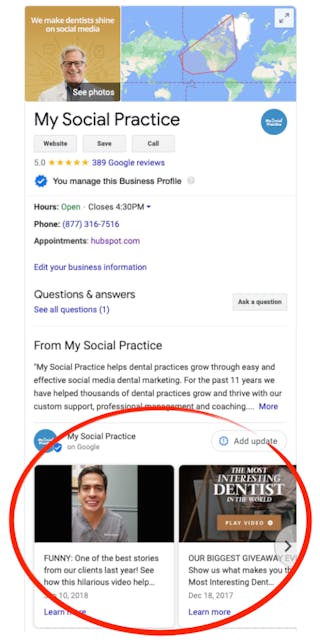
7. Enhancing User Experience
User experience (UX) plays a crucial role in attracting and retaining visitors to your dental website. A positive UX not only keeps visitors engaged but also improves your website’s SEO performance.
7.1 Responsive Design and Mobile Optimization
In today’s mobile-centric world, ensuring your dental website is mobile-friendly is vital. Responsive design allows your website to adapt seamlessly to different screen sizes, providing an optimal viewing experience on smartphones, tablets, and desktops. Google prioritizes mobile-friendly websites in its search results, making mobile optimization crucial for SEO.
7.2 Fast Loading Speed
Page loading speed significantly impacts user experience and SEO. Slow-loading websites lead to higher bounce rates and negatively affect your search engine rankings. Optimize your website’s loading speed by minimizing image sizes, leveraging browser caching, and using content delivery networks (CDNs).
7.3 Intuitive Navigation
An intuitive and user-friendly navigation structure makes it easy for visitors to find the information they are seeking. Ensure your dental website has a clear and organized menu, providing logical pathways to different pages and sections. Clear navigation enhances user experience and helps search engines understand the content and structure of your website.
7.4 Clear Call-to-Actions
Including clear and persuasive call-to-actions (CTAs) on your dental website prompts visitors to take desired actions, such as scheduling an appointment or contacting your practice. Well-placed CTAs increase user engagement and conversions. Make sure your CTAs stand out visually and are placed strategically throughout your website.
8. Leveraging Local SEO for Dental Practices
For dental practices targeting a specific geographic area, leveraging local SEO strategies is extremely important. Local SEO helps you reach potential patients in your vicinity and boost your visibility in local search results.
8.1 Importance of Local SEO
Local SEO allows your dental practice to appear in the “Local Pack” or the map section of search engine results. By optimizing your website for local keywords and implementing location-specific strategies, you can attract nearby patients actively seeking dental services.
8.2 Creating and Optimizing Google My Business Listing
Creating a Google My Business (GMB) listing is an essential step in local SEO for dental practices. Optimize your GMB listing by providing accurate and up-to-date information about your practice, including address, phone number, business hours, and website URL. Encourage patient reviews on your GMB listing to boost your local visibility and credibility.
8.3 Encouraging Online Reviews
Online reviews are vital for local SEO and establishing your dental practice’s reputation. Encourage satisfied patients to leave reviews on platforms like Google, Yelp, or Healthgrades. Positive reviews not only contribute to your search engine rankings but also influence potential patients’ decision-making processes.
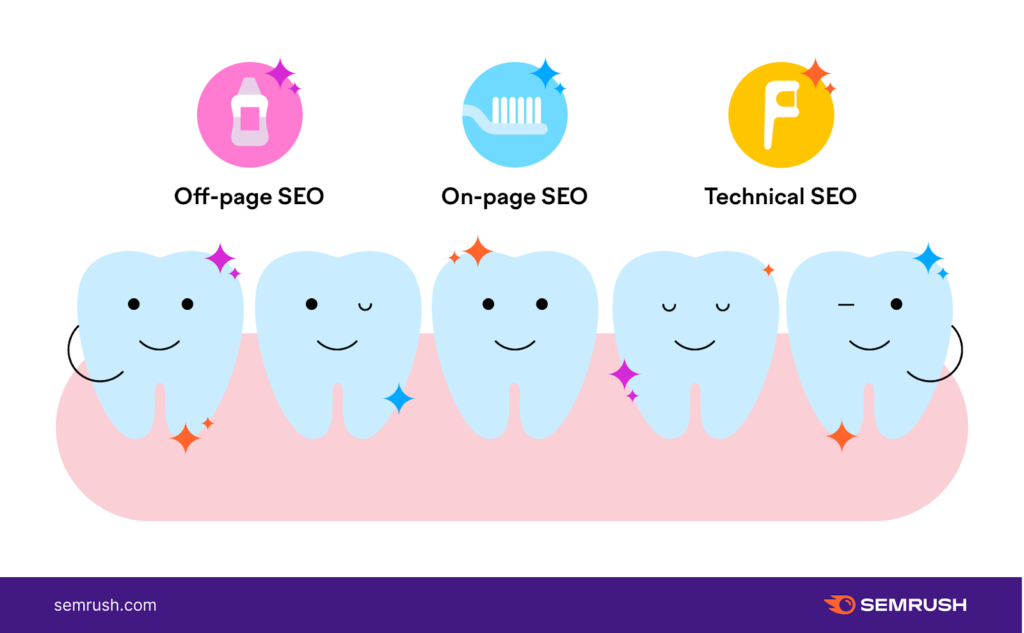
9. Monitoring and Analyzing Dental SEO Progress
Monitoring and analyzing your dental website’s SEO progress is essential for identifying areas of improvement and ensuring ongoing success.
9.1 Tracking Keyword Rankings
Regularly track your dental website’s keyword rankings to assess your SEO performance. Tools like Google Search Console and third-party ranking trackers provide insights into the keywords you’re ranking for, as well as the progress made over time. Use this data to refine your keyword strategy and optimize your website accordingly.
9.2 Monitoring Website Traffic
Monitor your website traffic to understand how visitors are finding and navigating your dental website. Utilize web analytics tools like Google Analytics to gain insights into user behavior, demographics, and the efficacy of your SEO efforts. Make data-driven decisions to improve user experience and engagement on your website.
9.3 Utilizing SEO Analytics Tools
Take advantage of SEO analytics tools to gain a deeper understanding of your dental website’s SEO performance. Tools like SEMrush, Moz, or Ahrefs offer valuable insights into backlink profiles, competitor analysis, and keyword research. These tools help you identify opportunities, optimize your SEO strategy, and stay ahead in the ever-evolving dental industry.
10. Hiring an SEO Agency for Dental Websites
While implementing SEO strategies for your dental website can be done in-house, hiring a dedicated SEO agency brings numerous benefits and expertise to the table.
10.1 Benefits of Hiring an SEO Agency
An SEO agency specializing in dental websites can provide comprehensive SEO services tailored to your practice’s needs. They possess up-to-date knowledge of industry trends, SEO algorithms, and best practices. They also have the necessary tools and expertise to effectively optimize your website, saving you time and resources.
10.2 Factors to Consider in Choosing an SEO Agency
When selecting an SEO agency for your dental website, consider factors such as their experience, track record, client testimonials, and the specific dental SEO services they offer. Ensure the agency understands your practice’s unique requirements and can provide a customized SEO strategy aligned with your goals.
10.3 Ortho Advertising: Leading SEO Agency for Dentists and Orthodontists in Philadelphia
Ortho Advertising is a reputable SEO agency located in Philadelphia, specializing in serving the unique digital marketing needs of dentists and orthodontists. With their extensive experience in dental SEO, they can help revamp your dental website’s online presence, attract more patients, and maximize your return on investment.

